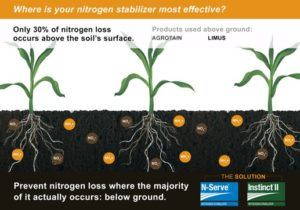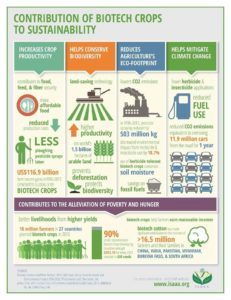The Love-Hate Relationship between Agricultue and Climate Change
The agriculture industry continues to find ways to be resilient when facing the negative effects of climate change.
Prior to starting my RC year at Harvard Business School, I worked as a Supply Chain Project Leader at Dow AgroSciences. Dow Ag, often referred to as DAS, is a $6.8 billion global company with a mission to feed the growing world by using sustainable chemicals and biotechnology to increase yield. Headquartered in Indianapolis, Indiana, the two key business are Seeds and Crop Protection. The Seeds business focuses on the development of various seed technology, while Crop Protection encompasses products that you apply to crops and soil such as herbicides, pesticides, and nitrogen stabilizers1.
The operating model at DAS begins with its pipeline of products. After 10 to 13 years of discovery and gate stages, crop protection and biological traits respectively2, DAS is ready to launch its new herbicide or seed. Generated by production campaigns either in house or via a contract manufacturer, end products are distributed directly to the customer or to a storage facility such as a warehouse or terminal. R&D and business leaders are constantly asking themselves what challenges are their customers facing today, what will they need in the future, and what can we do to help.

Climate change – the attack on agriculture
Naturally as an agricultural and technology company, the success of Dow AgroSciences is highly influenced by the effects that climate change has on the farmer. As weather patterns vary and temperatures increase, a farmer may be forced to delay or even shorten his or her growing season. Too much rain or a drought can have negative implications such as an increase in pests, weeds, and parasites, all resulting in lower yield.
Agricultural products are seasonal, and as the farmer faces variability in the weather, his or her demand will also vary. A challenge that DAS has to face is generating an accurate forecast despite the variation in weather patterns due to climate change. Commercial is well verse in the various growing seasons for their products, but it’s difficult to predict drastic seasonal changes. Drastic changes can lead to inaccurate forecasting which ultimately could lead to a shortage of product, increased inventory storage costs, and disruptions to production campaigns.
Innovation and technology fight back!
Dow AgroSciences is addressing the issue of climate change through product innovation and sustainability. The chemists and biologists are developing products such as genetically engineered seeds and nitrogen stabilizers that enable crops to adapt to the effects of fluctuating weather patterns, droughts, and extreme heat. N-Serve® and Instinct® II are two nitrogen stabilizers that help reduce leaching and greenhouse gas emissions by keeping nitrogen in the root zone3; leaching is the loss of nutrients in the soil due to an over abundant amount of water.

Another way DAS is attacking climate change is through their genetically modified seeds. Scientists are studying the effects of climate change to develop seeds that not only fight against insects and weeds, but also fight against extreme weather; the scientist are testing various breeding techniques to ultimately maximize yield and reduce the impact on the environment. Another benefit is that an effective seed may require less usage of herbicides and pesticides, thus reducing fuel from tractor passes, and ultimately CO2 emission4,5. The Mycogen® Seeds portfolio provides a variety of genetically modified seeds such as corn, soybeans, and sunflowers6,7. The built-in characteristics allow the crop to fight against the weather variables throughout the duration of the growing season.

What’s next?
Although climate change has a negative impact on crops, the implications open the doors to innovation in agriculture technology and reinforce the need for DAS product. As the world continues to confront climate change, Dow AgroSciences continues to research ways to improve climate predictability as well as how to innovate new products. In the end, irregular weather can have negative implications on agriculture, but Dow AgroSciences will continue to supply seeds and crop protection to farmers in order to increase yield and feed the ever-growing world!
(Word count: 650)
Sources:
- http://www.dowagro.com
- http://www.dowagro.com/en-us/innovation/our-pipeline
- http://www.dowagro.com/en-us/newsroom/pressreleases/2016/06/2016-green-chemistry-award#.WBwWWY-cGhd
- http://www.dowagro.com/en-us/on-the-table/blogpostfolder/2016/gmo-perspectives-parenthood-and-gmo-research#.WBwhuY-cFPY
- http://www.dowagro.com/en-us/on-the-table/blogpostfolder/2016/08/gmos-will-the-change-generation-help-advance-agriculture#.WBwi4Y-cFPY
- http://www.dowagro.com/en-us/usag/news-and-resources/newsroom/2015/july/08/mycogen-seeds-moves-beyond-drought-tolerance-with-stress-tolerant-hybrids
- https://mycogen.com/content/about



Very interesting article.
Whilst many industries and companies are faced with severe challenges as climate change takes its hold, it’s fascinating to understand in more depth how others are spotting the opportunity in these challenges and new, innovative business are emerging as a result.
In particular, it’s interesting to read about how DAS is attacking some of the challenges around extreme weather with genetically modified seeds. What strikes me here is the challenge in getting the end-consumer to adopt these GM products. Whilst it appears adoption is increasingly necessary if we are to be sustainable in a world of rapid climate change, many consumers are still hesitant to consume GM products, with many stigmatising the industry as unnatural and unhealthy.
Solving this comes down to (a) ensuring the GM seeds are as close to naturally farmed seeds as possible; (b) educating of the benefits of GM crops; and (c) reassuring the consumer of the safety of GM crops.
Interesting article, Karyn – thanks for sharing.
As JS’ comment points out, there still seems to be a fair amount of skepticism in consumers’ minds when it comes to GM products. Does DAS have any sort of advertising campaign focused on educating the end-consumer?
Likewise, I’d be interested to learn about DAS’ strategy for partnering with farmers. Is the company working directly with these farmers to educate them on best practices or is there a degree of separation?
Thanks for posting, Karyn. Great article. In addition to the questions raised above, I’d be curious as to how widely applicable are DAS’s technologies across crops – in other words, are they currently applying these innovations in several crops in particular, and what does their pipeline look like? It seems like a very interesting business and one which should have a major impact on the agricultural industry moving forward – I would be curious to hear how DAS thinks about product development for each of its innovations, as I’m sure they take quite some time to develop.
Thanks for sharing Karyn. Climate change certainly impacts the agriculture industry widely and it was interesting to read about innovations in Dow AgroScience – not only on the product side with new technologies that improve yield, but also with regard to managing supply chain constraints that arise from the increased variability and unpredictability between seasons.
I’ll try to take a stab at one of the questions that Jasper raised in the above comment, with regard to the relationship between DAS and farmers. Based on my experience at DuPont Crop Protection, there is a very tight link between Ag companies and farmers, despite a few degrees of separation in the value chain with intermediary distributors and retailers. This comes through not only education programs to engage farmers with the latest technologies and practices, but also through platforms that help identify the appropriate products for the farmers at any stage in the growing cycle. For example, earlier this year Dow AgroScience launched a new “precision agriculture” platform, that essentially allows farmers to “farm smarter” by using data to assess the conditions of their land and select the appropriate mix of products to optimize yields [1]. These types of precision agriculture platforms have interesting parallels to precision medicine, where the solutions/treatments can be tailored to the conditions identified through various diagnostics measures. This type of farmer-partnership program is one piece of the puzzle to help address the increased variability that comes with climate change, and can be coupled with the technological innovations described above in the post.
[1] Dow AgroSciences Puts Growers at the Center of a New Precision Agronomy Program. Dow AgroScience Press Release. March 6 2016. Accessed from: http://www.dowagro.com/en-US/usag/News%20and%20Resources/NewsRoom/2016/March/03/Dow%20AgroSciences%20Puts%20Growers%20at%20the%20Center%20of%20a%20New%20Precision%20Agronomy%20Program
Great article, Karyn. Thanks for your insight. I’m curious to hear your take on the effects of traditional GM seeds (those that contain pesticides/insecticides) on biodiversity, water sources, wildlife, and the creation of “super weeds”. My pre-MBA company was a big consumer of cotton, and proponent of organic agriculture. Many of the farmers we worked with had difficulty sourcing non-GM cotton seeds, because so much cross-pollination had occurred. In fact, I suspect that much of the “organic” cotton we purchased, was not truly organic, due to contamination. I’d be curious to hear your interpretation of Dow’s take on this phenomenon. As for the new seeds that are modified to protect plants against extreme weather – do you anticipate similar concerns arising around biodiversity?